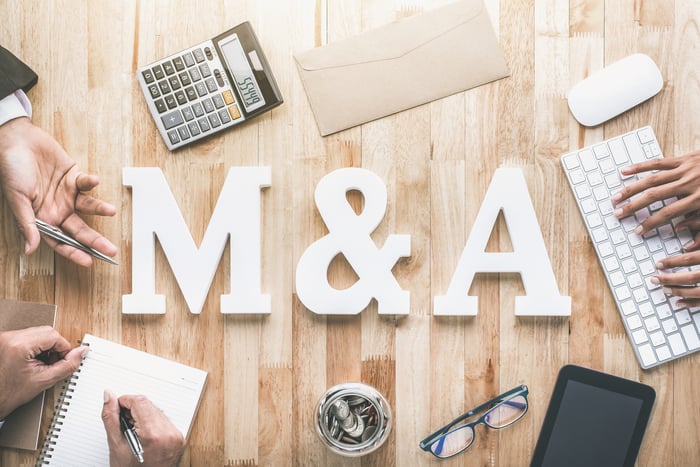Electric vehicles (EVs) stand as sturdy pillars in the edifice of the sustainability movement. It comes as no surprise that major legacy car manufacturers like Ford, General Motors, and Volkswagen have dipped their toes in the waters of battery-powered vehicles.
Yet, beyond the traditional automakers, a new wave of interest in entering the EV market emerges from big tech companies. Over the past few years, Apple has been quietly toiling on its own EV project. This move seems natural for Apple, a company renowned for its innovative spirit, especially in the realm of consumer electronics. However, recent buzz suggests a shift in the winds – with reports surfacing that Apple is pulling the plug on its in-house EV endeavor, dubbed Project Titan.
But does this abrupt halt signify the end of Apple’s EV dreams?
The intriguing proposition from Wall Street
Gene Munster of Deepwater Asset Management, a distinguished figure among Wall Street’s technology analysts, is not one to shy away from bold ideas. Despite the demise of Project Titan, Munster recently tossed an intriguing notion into the ring.
While chatting on CNBC, Munster proposed an intriguing possibility – Apple swooping in to acquire Rivian. This proposition holds weight for several reasons.
On one hand, Rivian has managed to carve out a niche in the competitive EV arena. Nonetheless, the company seems ensnared in a “one step forward, two steps back” dance, encountering fresh hurdles each time progress is glimpsed.

Image Source: Getty Images
The Quest for Growth: Apple and Rivian
Apple, grappling with declining sales in its flagship consumer electronics division, finds itself at a crossroads. As users extend the lifespan of products such as iPhones, iPads, and laptops, Apple’s revenue has taken a hit.
While the Services arm of Apple shows robust growth, it fails to offset the slump in hardware sales. This predicament leaves Apple hunting for new avenues of growth.
On the other side of the equation, Rivian witnesses a surge in production, releasing 57,232 vehicles in 2023 – a staggering 135% rise from the previous year. Despite this promising trajectory, turbulence lurks on the horizon.
During a recent earnings call, Rivian caused ripples in the investor pool by forecasting virtually flat production for the year 2024.
Both Apple and Rivian share a common woe – contending with a marketplace characterized by soaring interest rates and dampened luxury consumption appetites due to recent inflation spikes.
As both entities seek to supercharge growth and reinvigorate investor interest, one cannot help but wonder – could an Apple-Rivian alliance be a match written in the stars?
Should Apple embark on the Rivian Voyage?
At first glance, Munster’s proposal strikes a chord with logic.
For Rivian, an affiliation with Apple could prove transformative. Nestled within Apple’s embrace, Rivian would gain immediate access to a vast array of engineers and technocrats, not to mention unfettered access to Apple’s colossal financial war chest. In return, Apple would step into the EV domain, enriching its product offerings within its ecosystem.
With over $73 billion in cash and equivalents adorning its balance sheet, Apple could snatch up Rivian in an all-cash transaction, even at a significant premium, and still have ample change jingling in its pockets.
However, delving deeper into Apple’s acquisition history casts a shadow of doubt on the likelihood of such a rendezvous coming to fruition.
In 2014, Apple’s largest purchase to date stood at $3 billion for Beats Electronics. Across its ten most sizable acquisitions, Apple parted with approximately $7.4 billion.
These historical snapshots paint a clear picture – Apple seldom treads the path of grand-scale acquisitions. While the allure of acquiring Rivian may entice, and the move could indeed align strategically for both parties, the odds seem stacked against it. Big-bang acquisitions don’t seem to be part of Apple’s genetic blueprint, a trait unlikely to mutate in the near future.
Should you consider investing $1,000 in Apple at this moment?
Before diving into the Apple stock pool, ponder this:
The Motley Fool Stock Advisor team highlights ten stocks they believe could be the breakout stars of the stock market, with Apple not cracking the top ranks. The selected ten contenders boast the potential for massive returns in the coming years.
Stock Advisor offers a roadmap for investors to navigate, equipped with insights on portfolio construction, frequent analyst updates, and two fresh stock selections every month. Since 2002, Stock Advisor’s returns have outstripped the S&P 500 threefold*.
Adam Spatacco holds positions in Apple. The Motley Fool also discloses positions in and recommendations for Apple and Volkswagen Ag. It further recommends General Motors and suggests long January 2025 $25 calls on General Motors as per its disclosure policy.

